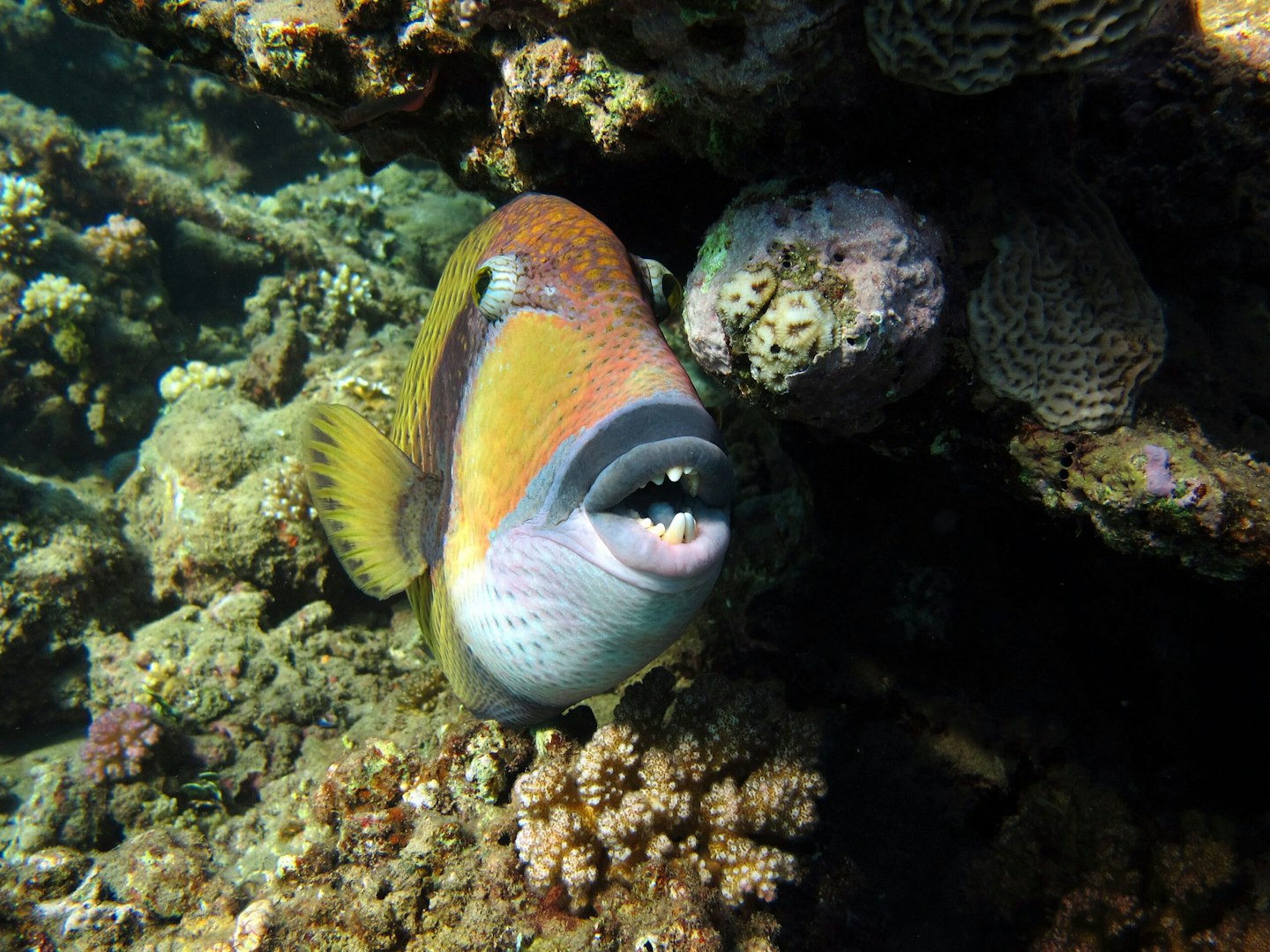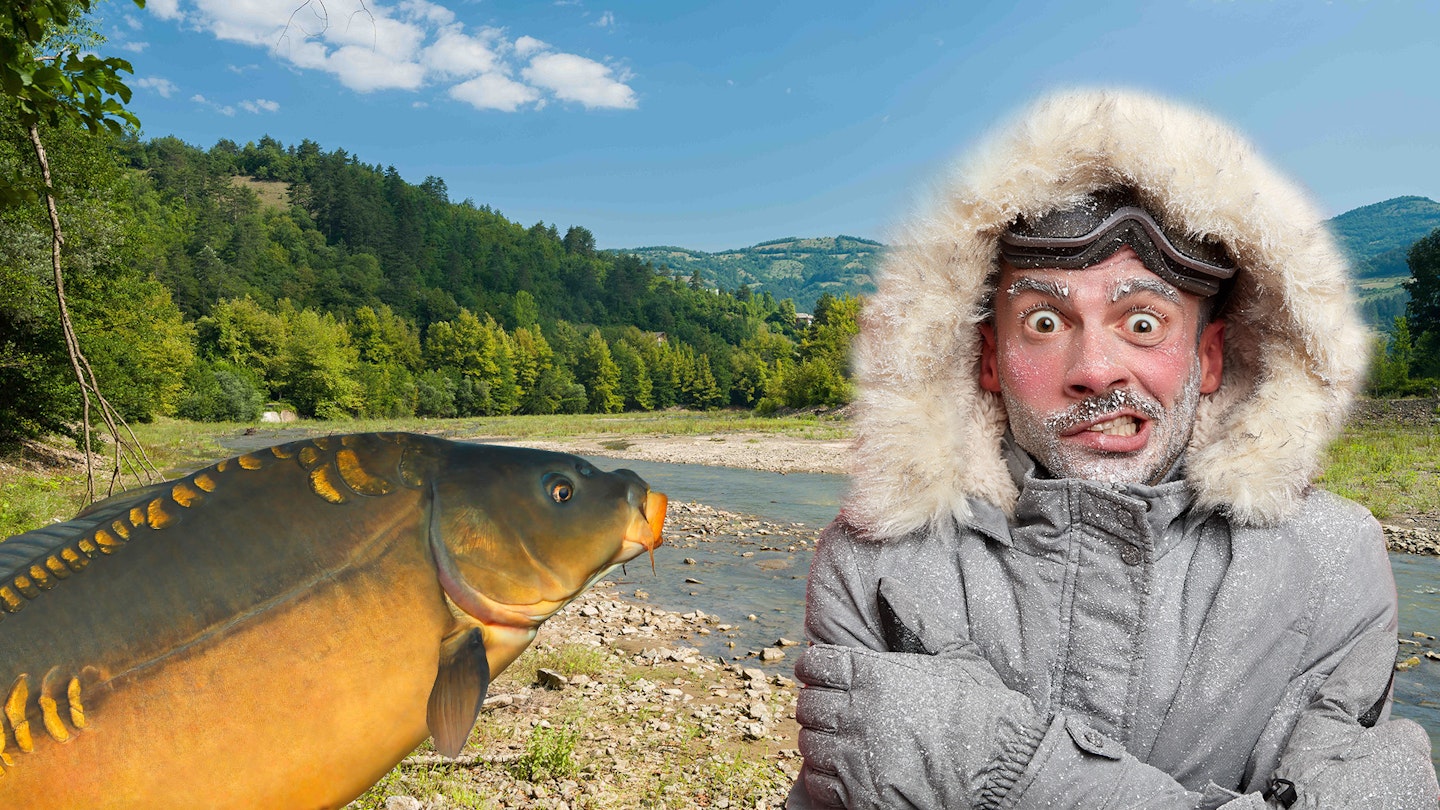1 - Hot, dry summers
With the UK’s first 400C temperatures recorded this year, heatwaves and droughts will become more regular. While this might mean a longer growing season for fish, some species could be severely tested.
“We’re getting close to the thermal tolerance limits of some species,” says Mark. “Fish like carp and tench can handle heat, but others like grayling, salmon and pike struggle. Lower water levels and decreased oxygen levels will also concentrate pollutants and make fish more vulnerable to predation.”
Fishery closures will become more common to protect stocks, and anglers will have to be more careful than ever with their quarry. “Low oxygen levels can increase stress, and it’s up to us to care for our catch,” says Mark.
“One giveaway sign is if fish feel hot to the touch!”
Another solution for many fisheries is to preserve and plant more trees. “Natural shade is critical to regulate temperature,” says Mark. “Fish need shelter just as much as we do.”
Meanwhile, there’s a huge amount to be done in terms of saving water and treating it as a precious resource. Mark believes public education on this is lagging severely, and better awareness could significantly reduce risks such as over-abstraction.
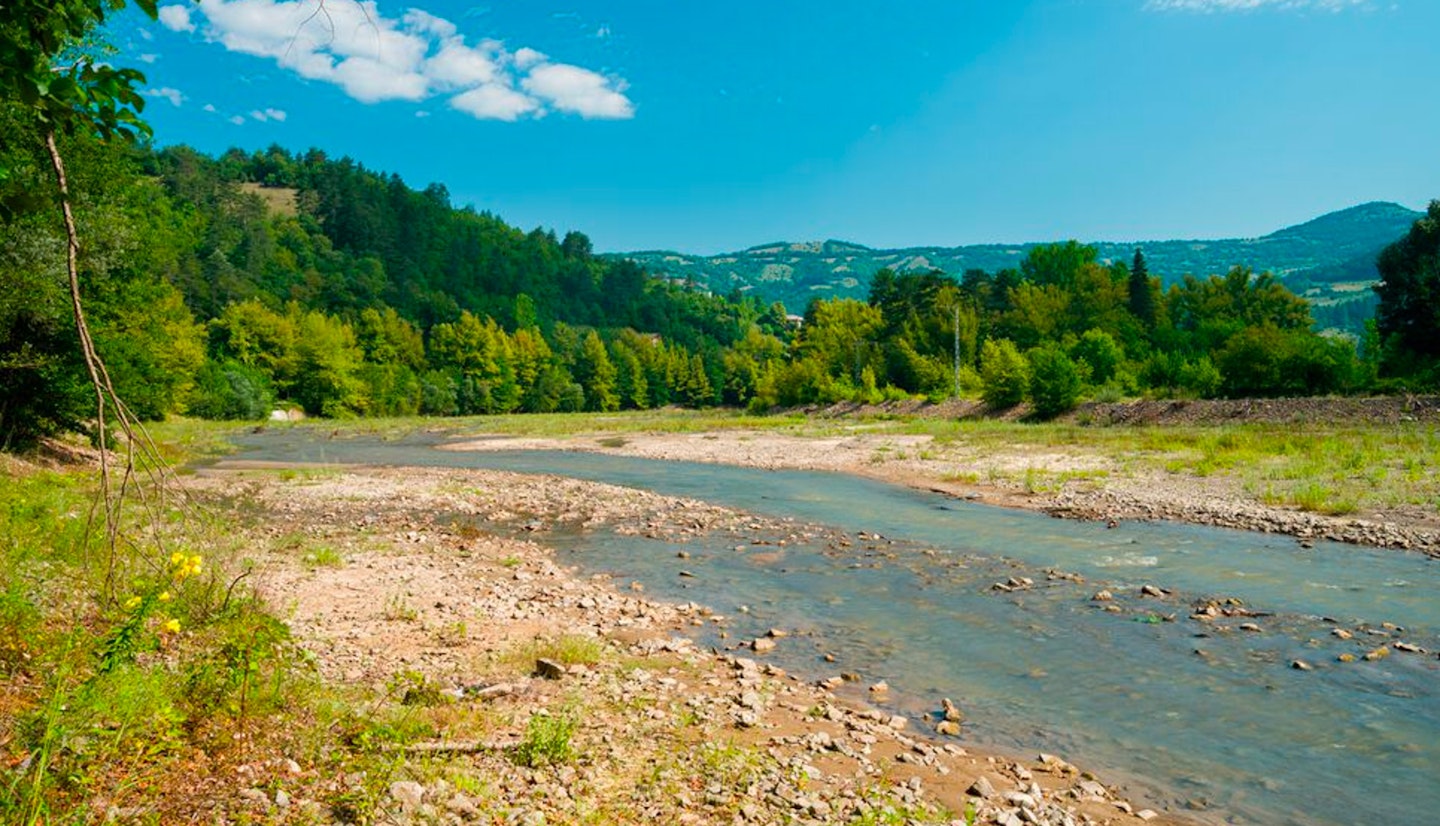
2 - Spawning changes
Often overlooked when it comes to climate, even small changes can impact the success or failure of reproduction in fish. “We’re creating extremes and stretching what many fish can handle,” says Mark, who sees the timings and success rates of different species shifting.
“Barbel are at their northern limit on some English rivers and can struggle to recruit,” he warns. And while chub fry, for example, do well in hot, dry summers, this is of little use if intense floods then sweep most of them away.
Much hotter summers could suit the non-native species best of all, and it’s likely that species like catfish and grass carp could spawn with more success – which is bad news for native fish.
“When you add climate extremes to existing issues like siltation and habitat removal, fish will need our help more than ever,” says Mark. “The best action we can take is to reinstate lost habitat, such as spawning gravels, fry refuges, tree cover and wetlands.”
It’s also possible that we’ll need to look at timings regarding the closed season and individual fisheries, to protect vulnerable stocks.
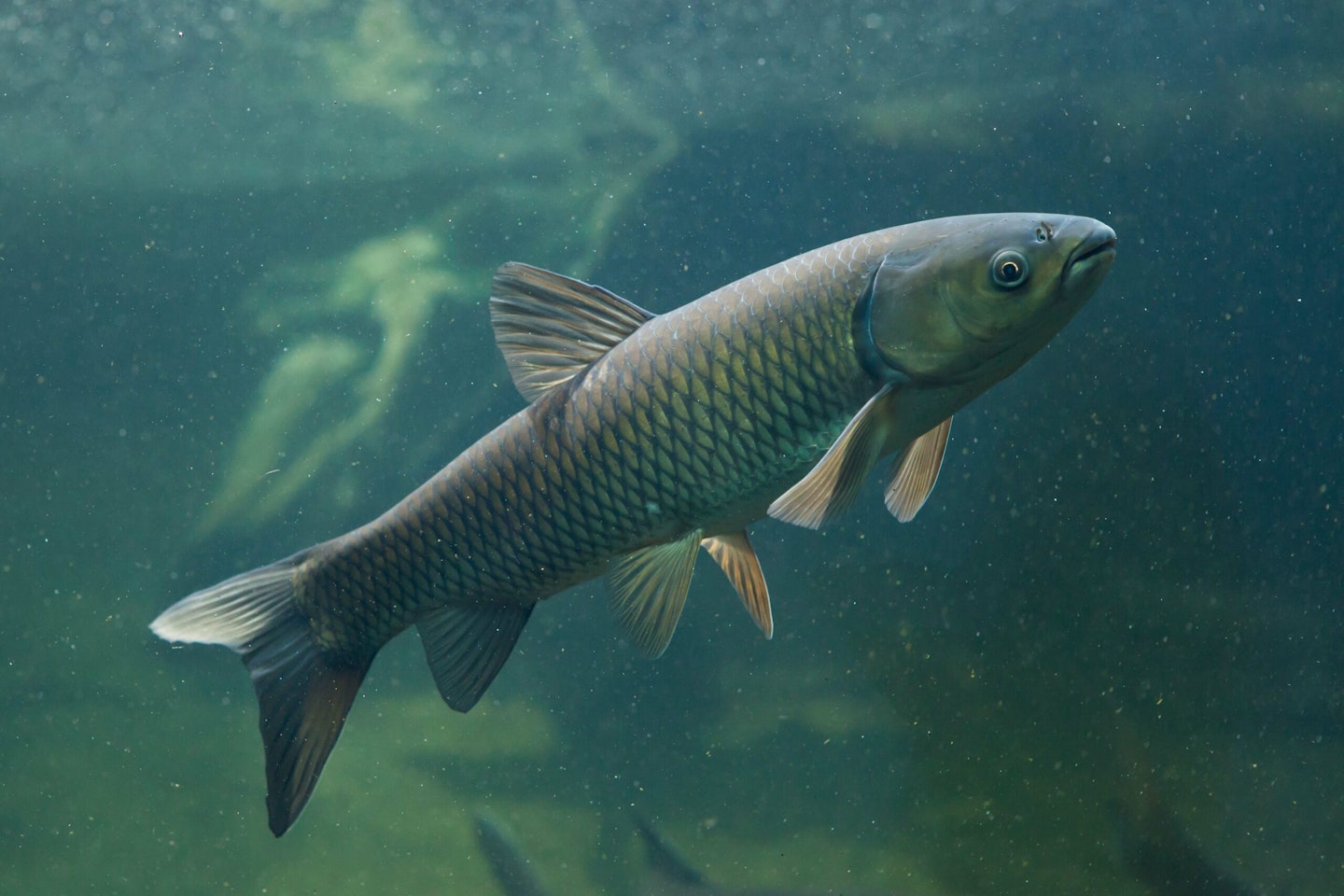
3 - Winter floods and extremes
If dry summers are often just brushed off by sun-loving Brits, the impact of more regular and brutal flooding is an ominous feature of climate change. Indeed, phrases like ‘global warming’ are disliked by many scientists who would favour ‘global instability’ or even ‘climate chaos.’ After all, our impact on the planet isn’t just about heat, but extremes of every kind. The only certainty is uncertainty!
“Change is already here – and much of our approach is to adapt and deal with it,” says Mark.
“With rainfall, one glaring trend is how it’s becoming more clustered. You often get a sudden dumping of rain – the patterns are more erratic, and forecasts are often way out.”
Anglers have technology on their side here, with forecast and river level apps, but many of us will also have to adjust our habits to winter extremes, whether that’s switching venues or changing tactics as waters confound our expectations.
None of us can stop the rain, or foresee what next season will bring, but Mark is adamant that we must urgently wake up and act.
“Business as usual is simply not an option – and if we’re serious about this then we must act now. Avoiding yet more building on floodplains would be a great start, and we urgently need to start valuing our wild places more for all the good things they do for fish, other wildlife and people. If we refuse to switch course, all these problems will only get worse.”
It’s a brave and volatile new world out there, but as a group of people as passionately invested in water and wild places as anyone, surely anglers have a key role in sounding the alarm and demanding real change?
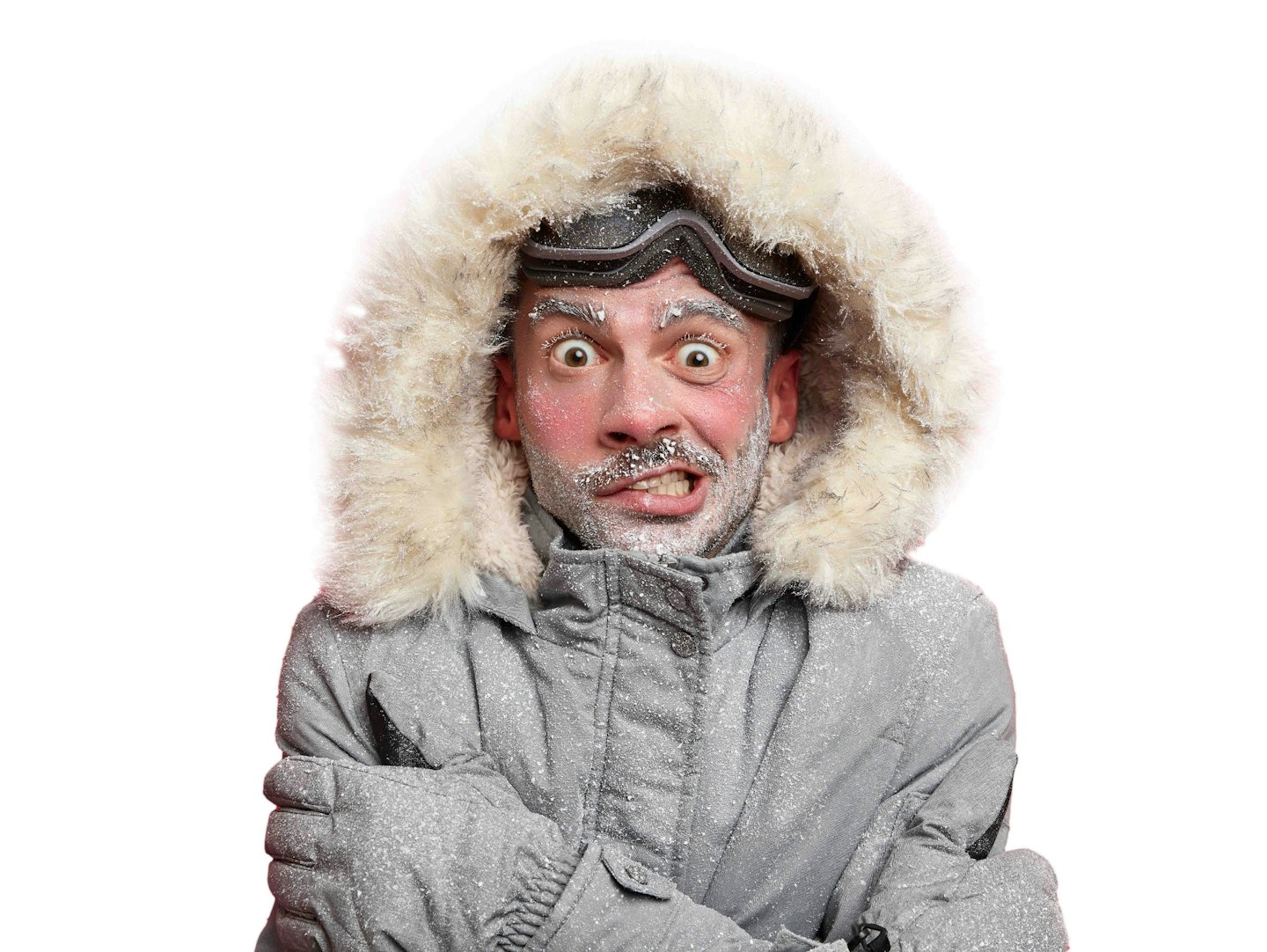
4 - Anglers in danger!
While it’s easy to focus on fish, anglers will also be at increased risk because of climate change. Even as records tumble, many of us are still quite blasé about the risks of skin cancer and heatstroke.
“A baking hot fishery can be as off-putting and unsafe as a flooded river,” says Mark, who can see more anglers giving it a miss in extreme heat, just as they would in the depths of a wet or freezing winter. The economics of angling could also be hit.
Thankfully, the measures we can take here are simpler – always cover up and take protection from extremes of hot and cold.
Drink plenty, be prepared and always remember, no fish is worth risking your wellbeing.
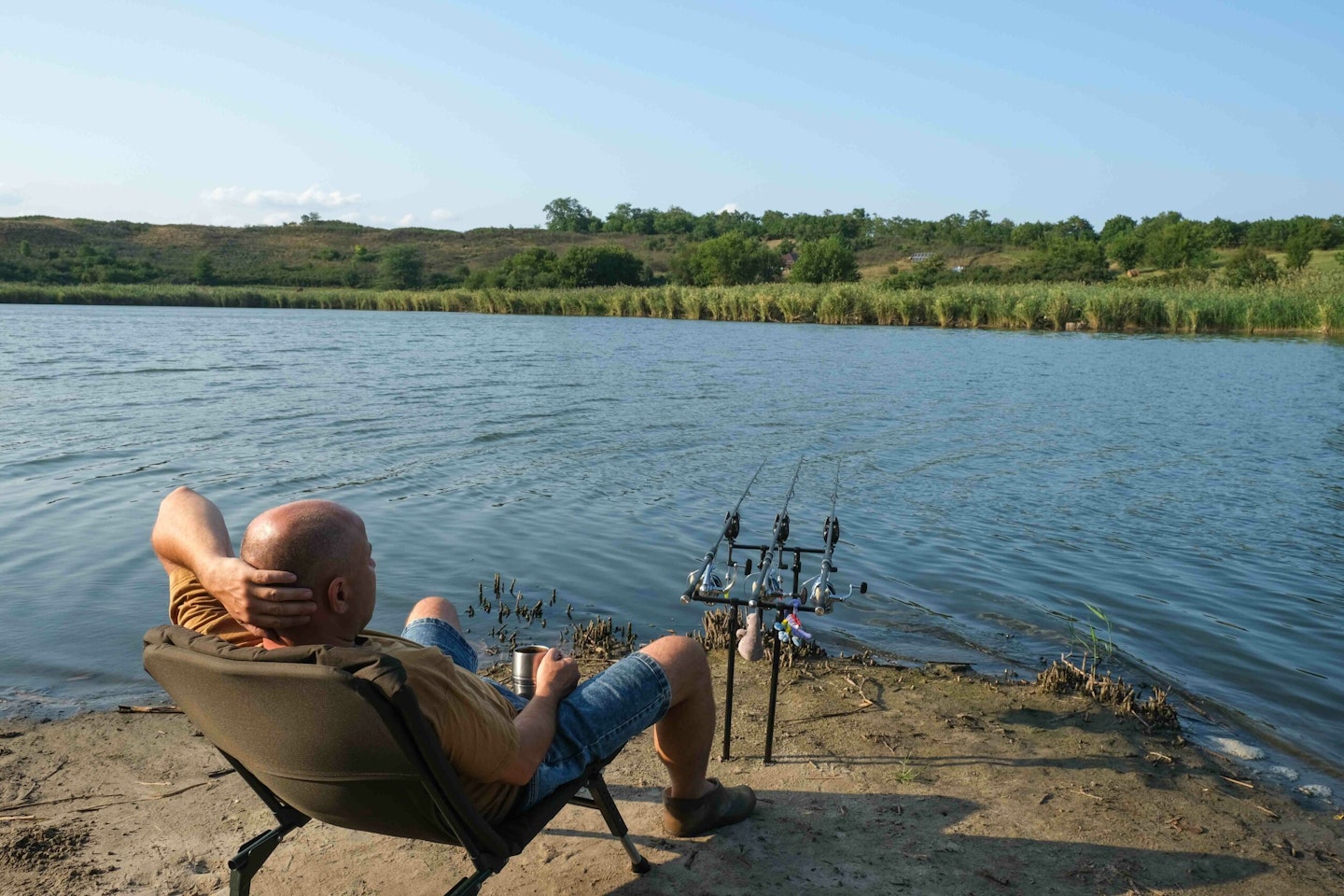
5 - New species could thrive
One of the few positives of warming temperatures is the prospect of new species thriving and fresh possibilities opening up.
Creatures such as trigger fish and even tuna are now in British waters, while the flipside is that cod and even mackerel are becoming patchy as they migrate north.
In fresh waters, fish can’t just leap across catchment boundaries. “Settled populations in lakes and rivers cannot simply move home or migrate,” says Mark. “Many non-native plants and animals could thrive better than our native species in this altered new world!”
One obvious action all anglers can take here is to record any sightings of invasive species, and thoroughly check, clean and dry their gear between fishing sessions.
